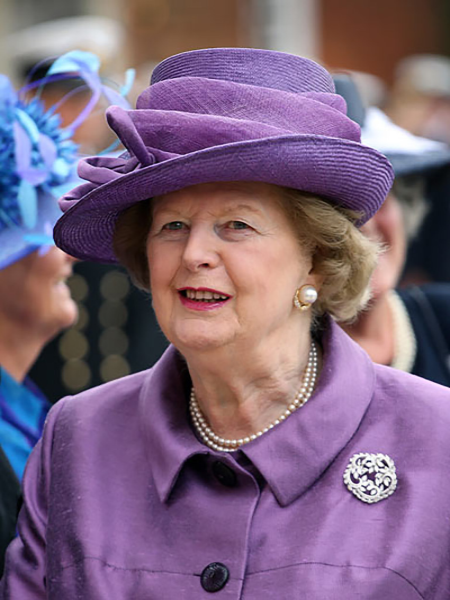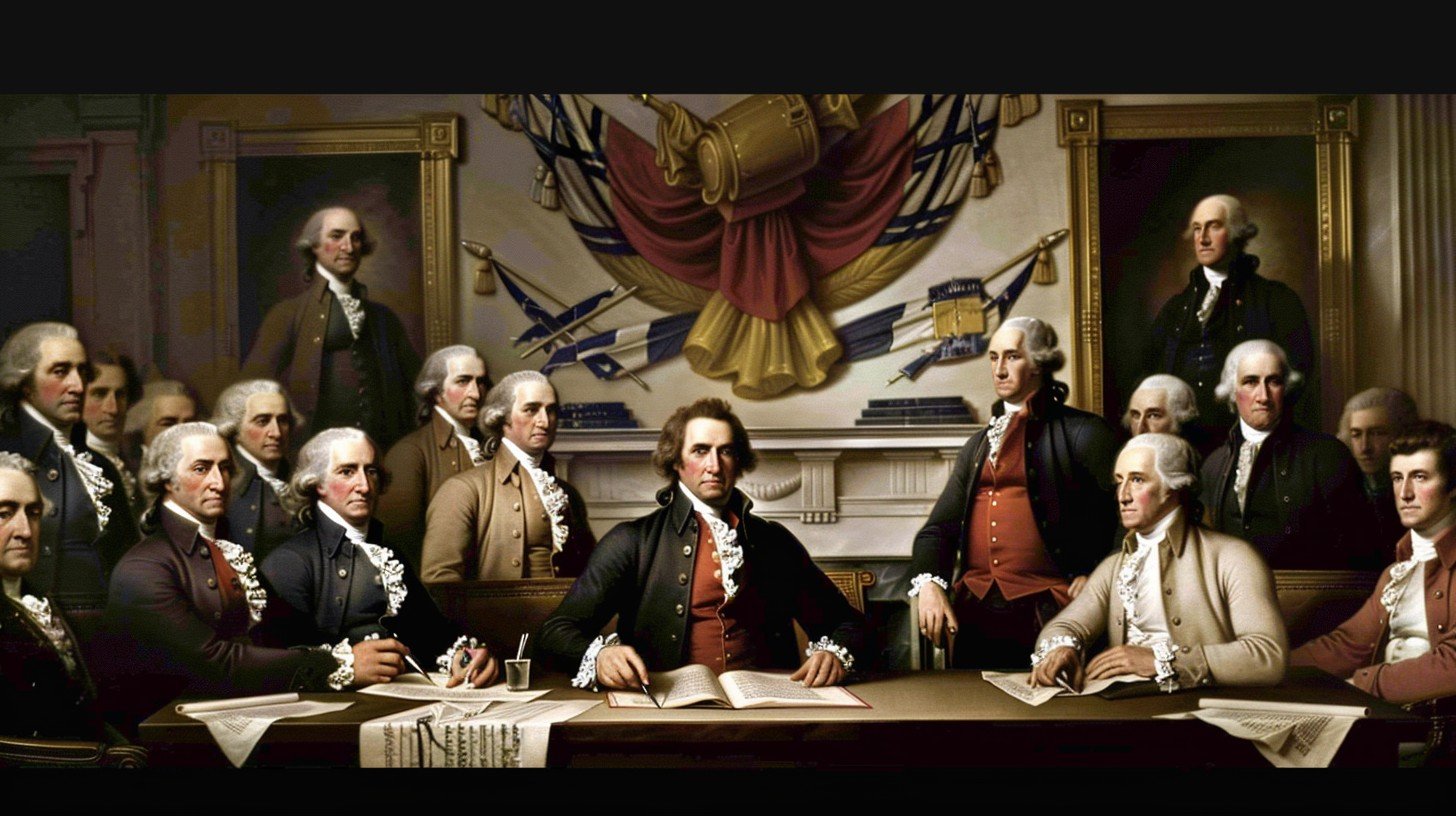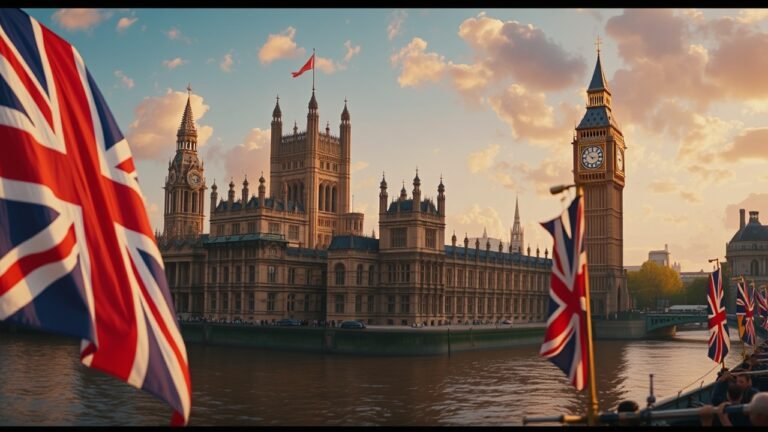British politics, with its deep-rooted history, has been formed by centuries of ideological shifts, control struggles, and social changes. Understanding this advancement gives a valuable understanding of how the advanced political landscape developed, as well as the forces that proceeded to impact it. From the signing of the Magna Carta in 1215 to the seismic shifts of Brexit, British political history is a captivating journey that reflects broader changes inside society.
The Roots of British Politics
The roots of British politics can be traced back to the Anglo-Saxon administration, where local congregations (known as “Witans”) played a pivotal part in decision-making. However, one of the most essential moments in the advancement of British politics was the signing of the Magna Carta in 1215. This document, constrained upon King John by rebellious barons, laid the establishment for the guideline that the monarchy was not over the law. It moreover set up the concept of consultation, which would inevitably evolve into parliamentary representation.
The Development of Parliamentary Power
The foundation of the English Parliament in the 13th century marked the start of a long struggle between the monarchy and those looking for more prominent representation. Initially, the monarch held supreme power, but over time, Parliament started to assert itself. The House of Commons, representing the common individuals, gained noteworthy impact, especially as financial development led to an empowered merchant class. This gradual shift from a supreme monarchy to parliamentary sovereignty was solidified over several centuries.
The English Civil War and Its Impact
The English Civil War (1642–1651) was a turning point in British political history. The strife, primarily between King Charles I and Parliament, rotated around issues of administration, religion, and royal authority. The war finished with the execution of Charles I and the temporary establishment of the Commonwealth under Oliver Cromwell. Although the government was afterward reestablished, the Civil War permanently changed the balance of control, putting Parliament at the heart of the administration.
The Glorious Revolution and the 1689 Establishment of the Bill of Rights
The Great Revolution of 1688 was a bloodless coup that replaced King James II with William of Orange and his spouse Mary. This occasion was significant since it led to the Bill of Rights in 1689, which constrained the powers of the monarchy and set up key principles such as free elections, the right to petition, and the necessity of parliamentary assent for tax assessment. This period marked the birth of a constitutional government in Britain, laying the basis for modern democratic administration.
The Rise of Political Parties
The late 17th century saw the development of Britain’s first political parties: the Whigs and the Tories. The Whigs by and large upheld parliamentary supremacy and were more dynamic, whereas the Tories favored royal authority and conventional values. Over time, these groups advanced into what we recognize today as the Liberal Democrats (descendants of the Whigs) and the Conservative Party (descendants of the Tories). The arrangement of political parties introduced organized competition in politics, forming how policies and power would be challenged in the years to come.
The Reform Acts of the 19th Century
The 19th century saw major political changes take place in Britain. The Great Reform Act of 1832 tended to widespread corruption and expanded voting rights to more men, especially the burgeoning middle class. This act was the first of a few changes that continuously extended suffrage, leading to more inclusive electoral representation. By the end of the century, the political landscape had moved to reflect a broader range of society.
The Impact of Industrialization on British Politics
The Industrial Transformation not only changed the economy but also had a significant impact on British politics. Urbanization, financial disparity, and the rise of a working-class populace brought new challenges. The Labour movement emerged as a reaction to these challenges, supporting workers’ rights and social equity. This period saw the formation of trade unions and the eventual foundation of the Labour Party, which would become a major constraint in British politics.
The Emergence and Rise of the Labour Party
Within the early 20th century, the Labour Party rose as a political voice for the working class. Shaped from trade unions and communist groups, the Labour Party aimed to address financial disparity and improve workers’ rights. By 1924, Labour shaped its first government, signaling the conclusion of the two-party system ruled by the Conservatives and Liberals. The party’s impact kept on growing, leading to major social changes in the post-war period.
Women’s Suffrage and Political Change
The fight for women’s suffrage was another significant chapter in British political history. After a long time of campaigning, dissents, and activism, the Representation of the People Act 1918 was passed, permitting voting rights to women over 30 who met certain property capabilities. This was taken after the Representation of the People (Equal Franchise) Act 1928, which opened up equal voting rights to all grown-ups, marking a critical step toward gender uniformity in British politics.
Post-War Consensus and the Welfare State
The consequence of World War II brought about an agreement among major political parties on the requirement for a comprehensive welfare state. Under the authority of Clement Attlee, the Labour government set up the National Health Service (NHS), extended social security, and nationalized key industries. This period of political participation, often referred to as the “post-war consensus,” characterized British politics until the late 1970s.
Thatcherism and the Conservative Revolution
The election of Margaret Thatcher in 1979 stamped a sensational move in British politics. Thatcherism, characterized by free-market policies, privatization, and a lessening in state intercession, reshaped the political and financial scene. Her government’s approaches led to financial development but too extended social divisions. The legacy of Thatcherism continues to impact the Conservative Party and British politics at large.

The Rise of New Labour and Tony Blair

Within the 1990s, the Labour Party, under Tony Blair, rebranded itself as “New Labour,” appealing to a broader electorate by grasping centrist approaches. This procedure led to a landslide victory in 1997. Blair’s government centered on education, health care, and social change while maintaining numerous of the financial policies introduced under Thatcher. The New Labour period marked a period of steadiness and success, but it was too questionable, especially regarding the Iraq War.
The Devolution of Power to Scotland, Wales, and Northern Ireland
Devolution became a noteworthy feature of British politics in the late 1990s. The foundation of the Scottish Parliament, the Welsh Assembly, and the Northern Ireland Assembly permitted greater self-governance in these locales. Devolution has since played a critical part in tending to regional issues and has sparked ongoing debates about the future of the United Kingdom’s political structure.
Brexit and Its Consequences
The Brexit referendum of 2016 was a significant moment in British politics. The choice to leave the European Union reflected profound divisions inside the nation and brought approximately critical political and financial changes. Brexit has redefined Britain’s part on the global stage, impacted exchange relations, and led to years of political instability. The long-term results of Brexit proceed to unfold, forming the future of British politics.
The Future of British Politics
As British politics proceeds to advance, a few key issues loom large, including debates over constitutional change, the future of the Union, and the part of the UK on the world stage. The challenges posed by financial disparity, climate alter, and technological progressions will likely drive future political agendas. Understanding the journey of British politics helps to anticipate these shifts and better grasp the flow of current political debates.
Conclusion
The advancement of British politics is a story of change driven by social, financial, and ideological forces. From medieval times to the present day, the British political framework has experienced various changes, each leaving a permanent mark. By tracing this journey, we gain a more profound appreciation of how the past shapes the present and illuminates the future of administration in the UK.
FAQs
1. What was the significance of The Magna Carta in British political history?
The Magna Carta, signed in 1215, built up the rule that the monarchy was not over the law and laid the groundwork for parliamentary representation.
2. How did the English Civil War change the British political system?
The Civil War led to the temporary overthrow of the monarchy, strengthening parliamentary authority and permanently altering the balance of power.
3. What role did the Industrial Revolution play in shaping British politics?
The Industrial Revolution led to social and economic changes, giving rise to the Labour movement and demands for workers’ rights, which transformed political discourse.
4. How did Brexit change British politics?
Brexit triggered political divisions, impacted trade relations, and redefined the UK’s global role, leading to significant shifts in political alliances and policy directions.
5. What might be the next major political shift in Britain?
Future shifts could involve further constitutional reforms, challenges to the Union, and responses to global issues like climate change and technological disruptions.








